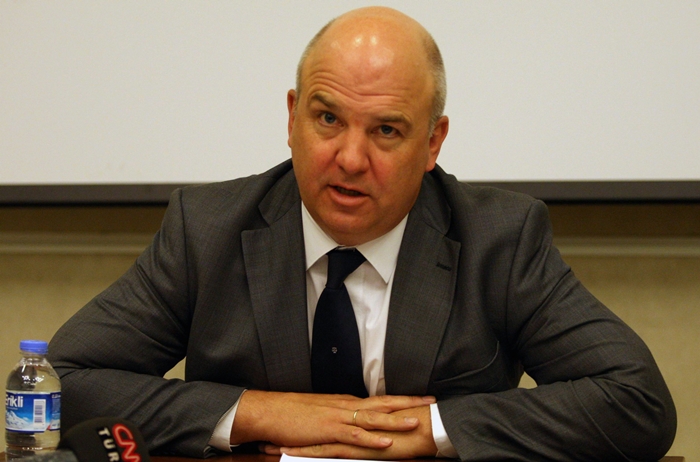Human Rights Commissioner at the Council of Europe Nils Muiznieks has called on Turkish authorities to end in the shortest time possible a state of emergency that was declared in the wake of a failed military coup on July 15.
A memorandum released by Muiznieks’ office on Friday on the human rights implications of measures taken under the state of emergency in Turkey, said: “… the Commissioner insists on the urgency of reverting to ordinary procedures and safeguards, by ending the state of emergency as soon as possible. Until then, the authorities should start rolling back the deviations from such procedures and safeguards as quickly as possible, through a nuanced, sector-by-sector and case-by-case approach.“
The memorandum was prepared based on the commissioner’s visit to Ankara Sept. 27-29, 2016.
Turkey survived a military coup attempt on July 15 that killed over 240 people and wounded more than a thousand others. Immediately after the putsch, the government announced a state of emergency for three months. It was extended for another three months in early October.
“The Commissioner notes with regret the Turkish government’s intention to prolong the state of emergency for a further 90-day period, but hopes that this period can be curtailed. In any event, the Turkish authorities should immediately start repealing the emergency decrees, starting with the provisions which allow the highest degrees of arbitrariness in their application and stray the widest from ordinary guarantees,” said the memorandum.
The memorandum also noted that “the Commissioner observes that the series of emergency decrees adopted in Turkey since July created very far-reaching, almost unlimited discretionary powers for administrative authorities and the executive in many areas, by derogation from the general principles of rule of law and human rights safeguards ordinarily applicable in a democratic society.”
The government is accused of using emergency rule to crack down on all its critics in the society as well as the faith-based Gülen movement, which the government claims to be behind the failed coup attempt.
Although the Gülen movement strongly denies having any role in the putsch, the government accuses it of having masterminded the foiled coup. Fethullah Gülen, who inspired the movement, called for an international investigation into the coup attempt, but President Erdoğan — calling the coup attempt “a gift from God” — and the government initiated a widespread purge aimed at cleansing sympathizers of the movement from within state institutions, dehumanizing its popular figures and putting them in custody.
More than 100,000 people have been purged from state bodies and 32,000 arrested since the coup attempt. Arrestees include journalists, judges, prosecutors, police and military officers, academics, governors and even a comedian.
The memorandum also said there is wide agreement in Turkish society about the Gülen movement being behind the coup attempt, adding that the commissioner would like to stress once more that he is not selectively concerned for the human right of the coup plotters or members of “FETÖ/PDY,” a phrase used by the Turkish government to refer to the Gülen movement as a terrorist organization. He recognizes that very serious crimes have been committed and must be punished, but is concerned about the system of human rights protection and promotion in Turkey.

